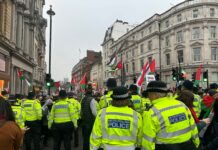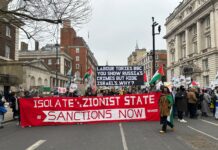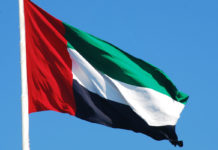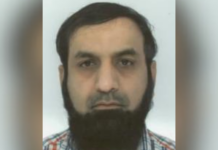This past week has seen a significant media row in the Middle East over accusations by Saudi Arabia that Yemen’s Houthi movement targeted Makkah in a rocket attack. But what is the truth behind these accusations, asks Ahmed Kaballo?
After Saudi Arabia made the accusation its regional allies, like Bahrain and Turkey, immediately began denouncing the “attack,” indicating the Houthis deliberately targeted the Islamic world’s holiest site. Some also instantaneously connected the attack to Iran who support the Houthis – a claim that has strongly been denied by both the Houthis and Tehran who say the target of the ballistic missile was a military base in Jeddah.
Nevertheless, Islamic scholars and prestigious organisations like Al Azhar University and the Organisation of Islamic Conference continued to condemn the attack with some even going so far as to call it an attack on the Islamic faith.
Over the course of the next few days, the story really picked up traction with mainstream media outlets such as Al Jazeera, The New York Times and The Independent all running with the story.
It also appears that by invoking the image of Makkah being attacked there has been a re-invigoration of support for the Saudis and their war against the Houthis in Yemen. Indeed, Golam Moshi, Bangladesh’s ambassador to Saudi Arabia, said that his country would be willing to send troops “to protect the holy cities of Mecca and Medina.”
 Some even claimed that the Houthis attacked Makkah because they are Zaydi, a branch of Shia Islam. Others said they have “no religion” and that is why they had no hesitation in attacking the holy site.
Some even claimed that the Houthis attacked Makkah because they are Zaydi, a branch of Shia Islam. Others said they have “no religion” and that is why they had no hesitation in attacking the holy site.
However, some have begun to question the validity of the Saudi claims. Why would the Houthis, an ultra-conservative Islamic political movement, attack the holiest site in Islam? Surely they must have been aware that such an action would draw widespread criticism from the Muslim world?
Subscribe to our newsletter and stay updated on the latest news and updates from around the Muslim world!
Also, the doubters pointed to the lack of proof the Saudis came up with, aside from an accusation in a statement.
Rather, the Houthis claimed the missile targeted Jeddah’s King Abdulaziz International Airport, where the Saudis have been launching attacks from. The Houthi-controlled news agency SABA claimed the missile “directly hit” the airport.
The Houthis have been locked in fierce battle against Saudi-led forces since March 2015, when the Saudis launched an offensive trying to restore the internationally-recognised but domestically-opposed President Abd-Rabbu Mansour Hadi.
Since the conflict began the Saudis have been widely criticised for the alleged targeting of civilian areas killing men, women and children in schools, hospitals, markets, mosques and most recently a crowded funeral ceremony. The Houthis have also been accused of targeting civilians.
The truth of the matter entirely depends on who you believe and perhaps where your political alliegances lie. The Saudi evidence seems to be based on their own statements, as does the Houthi version plus the fact that the Saudis have produced no actual physical proof.
Yet it would appear as though the Saudi narrative has penetrated the Muslim world to a much greater extent, perhaps because of their influence over it. As the custodians of Makkah and Medina Muslims may have decided to give them the benefit of doubt over a group of Yemeni rebels allied to Iran.






















